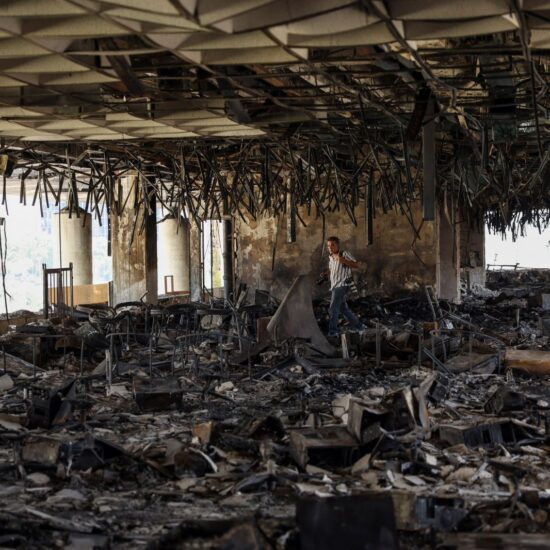
Exploring the ascent of cash companies in Lebanon's credit market as they navigate through a banking sector shadowed by economic crisis and political influence.
In recent years, Lebanon’s banking landscape has undergone a significant transformation. Following the collapse of the banking sector in 2019 due to a sovereign debt default by the Lebanese government, cash companies have emerged to fill the void. The growing influence of these cash companies was highlighted in a report I co-authored with Hanin Ghaddar for the Washington Institute in June 2023, titled “Hezbollah’s Cash Cabal.”
At that time, concerns were raised about the substantial amount of cash handled by these companies, as 50% of the Lebanese economy became dollarized and driven by cash. These entities operated outside the traditional banking framework and gradually established themselves as dominant players in the market. While banks remained in a zombie state, unable to perform basic banking operations like providing credit or exchanging money, cash companies entered the credit market and started offering loans to individuals and businesses.
On March 29, 2023, the Lebanese Central Bank issued 15 e-wallet licenses to various entities, including cash companies involved in internal and external money transfers, and newcomers to the market. Individual e-wallets were limited to banking up to $3,500 USD, while businesses could hold up to $50,000 USD, significantly higher than the typical limit for e-wallets in developing markets, which is usually $1,000 USD per wallet.
In the absence of regulatory frameworks and compliance in the financial sector, cash companies began accepting deposits from individuals and businesses. For instance, wedding registries, traditionally managed by banks, are now operated through cash companies, allowing multiple individuals to deposit funds into an account opened for the couple. Similarly, schools and businesses have started using cash companies for depositing school fees and managing payroll. Government bills are also being paid through these entities following a push from the finance ministry for citizens to use the cash companies instead of moving to e-government. The finance ministry is controlled by the Shia duo, Amal and Hezbollah.
As a result, cash companies began handling more deposits than they were licensed to. Most of these cash companies, as detailed in the Washington Institute report, are linked to Hezbollah/Allies or the Syrian regime allies in Lebanon.
This rise in deposits may have allowed the cash companies to expand their operations into the credit market, providing loans without proper banking/financial institution licenses.
The co-mingling of accounts could be one method these unlicensed cash companies use to provide loans. This happens when you mix deposits from one account with another for the purpose of transacting for your business, in this case, to provide loans. The source of funding for these loans remains, at best, mysterious. One company with a financial institution license claims they are lending from their own equity. However, upon examining their equity, it shows a mediocre number at the launch of the business, raising questions about the credit source. As for who is issuing credit loans to Lebanese cash companies, it is beyond anyone’s guess. This creates an issue for Anti-Money Laundering rules, and one should question if BDL is complicit in this or simply turning a blind eye.
Small and medium businesses I spoke to described their experience accessing loans through unlicensed cash companies. The business requests $50,000 USD (the maximum limit on the e-wallet for a business). Cash Company X provides the loan, showing an overdraft in that wallet up to $50,000 USD. The client is then taken to a notary public to sign documents between the cash company and the client (business) to state that a loan has been provided, along with a repayment and interest payment schedule. Interest rates range from 7-10%. When asked about collateral, one business disclosed that they pay their company’s payroll through the cash company. This raises the question: What happens when a business defaults on the loan? Could Lebanon wake up one morning to employees of Company X unable to access their money because the owner defaulted on a loan?
Interviews with industry insiders revealed that many businesses, particularly small and medium-sized enterprises, rely on loans from cash companies due to the lack of alternative funding sources for SMBs. However, concerns persist about the legitimacy of these loans and the financial stability of the companies providing them.
In a country where economic conditions are harsh and GDP growth is expected to be only 1.3% according to the World Bank, the alternative financing world of cash companies, dominated by underworld figures, seems to be thriving. Lebanon, increasingly under the influence of Hezbollah and its allies, struggles with compliance and anti-money laundering rules, raising further concerns about the transparency and integrity of the financial system, and now the credit market.
The cash companies, which since 2019 have dominated the cash economy, are now overtaking the credit market, banking the unbanked… literally.
Samara Azzi is a Lebanese investment banker. She can be reached on Twitter.
The opinions expressed are those of the author only and do not necessarily reflect the views of NOW.








